Eleven of the Top Ten Mistakes to Avoid in Your Options Program
By: Sam Renwick, CFA, Director, SVB Analytics
The new tax code provision IRC 409A and the new accounting standard FAS 123R are delivering a one-two punch in added complexity to your options program. After working with hundreds of companies to provide valuation solutions and accounting analysis, we have found our clients facing consistent challenges dealing with these new standards. Below we offer eleven of the top ten mistakes to avoid in granting stock options:
1. Giving yourself credit (or a discount)
Under 409A, discount stock options (those issued with strike prices below fair market value) are treated as a form of deferred compensation and when they vest, are subject to harsh penalties. These penalties will fall on your employees even if their options have not been exercised. Interest will be charged from the vesting date and a 20 percent penalty will be imposed by the IRS. The company is required to withhold payments for these taxes at the vest date similar to the treatment of restricted stock grants. Any Incentive Stock Options will, of course, become “non-qualified” options with additional adverse tax consequences for employees.
2. Forgetting to make amends for a wayward past
Since 2004, taxpayers have been permitted to comply with 409A in “good faith”. This “good faith” compliance period ends at the end of 2007 which means that all amendments to plan documents must be completed this year. This means that most discount options can be fixed by December 31, 2007. If you have this problem your attorney can advise you on how to bring those options into compliance.
3. Sailing beyond that safe harbor
Following the precepts of Section 409A to obtain a qualified independent appraisal of the fair market value of the company’s common stock will shift the burden of proof from you to the IRS (the safe harbor). You can do an internal valuation if the company is less than 10 years old and not reasonably expected to undergo a change in control or a public offering within the next 90 days. Further, according the IRS you should make sure your internal expert has “significant knowledge or training in performing similar valuations.”
4. Hiring someone who isn’t religious
In 2004, the AICPA published a Practice Aid entitled Valuation of Privately-Held-Company Equity Securities Issued as Compensation. Although this guide begins with a broad disclaimer, “This Practice Aid has not been approved, disapproved or otherwise acted upon by any senior technical committee of the AICPA or the FASB and has no official or authoritative status.” the guide has become the “bible” for all common stock valuations that will be used for FAS 123R. Your auditors will require any valuation of your common stock to comply with its methodologies.
5. Ignoring the call of that time machine
Do not forget the 409A consequences of prior options issuance. If the prior valuations look unreasonable compared with current values they may need to be reviewed or risk IRS scrutiny. A retrospective third-party valuation will determine whether a prior valuation method or conclusion was unreasonable creating serious tax implications for those optionees. This often happens when a company is conducting a retrospective review for SEC cheap stock and accounting purposes in preparation for an IPO.
6. Basing your valuation on wishful thinking
Executives sometimes push for lower valuations of the common stock because it becomes a greater incentive for employees. These low values are often questioned by auditors and they may be unwilling to sign off on the valuation. This creates a significant problem for the company as it must then rely on different valuations for tax and financial reporting which creates credibility issues if the value is ever questioned by the IRS.
7. Believing that small is beautiful (or immaterial)
Some executives have expected their auditors to pass over low valuations of their common stock because the amounts are immaterial to the audit. Be aware that after SarBox the definition of materiality has shrunk to the microscopic.
8. Loving that 10:1 tradition
The industry gravitated to a 10:1 rule of thumb relationship in pricing common stock against preferred stock (i.e. if the Preferred is worth $1 the common is priced at 10 cents). The attraction here is the simplicity. Unfortunately, most capital structures in venture-backed entities are anything but simple. Applying the methodologies in the AICPA Practice Aid, we see wide variations in that ratio between a series of preferred with a 1x liquidation preference versus a 2x liquidation preference. In general, the fewer economic rights afforded the preferred, the lower the ratio. So if your ratio is low, sit back and congratulate yourself on negotiating a good deal with your investors.
9. Relying on the last preferred to set the value
We are often told that the post money value of the deal defines the overall value of the enterprise. While this is certainly an important value marker, in fact, the post money calculation almost always overstates the value of the company. This is because that most recent round of financing has significant economic rights that not all of the other shares in the capital structure have. Therefore, simply multiplying all outstanding shares in the company’s capitalization structure by the last round of financing always overstates value.
10. Forgetting that price is what you pay, value is what you get
Cash strapped start-ups are always looking for a bargain. It is important to consider the total cost when you look at valuation service providers. By hiring a provider that has not successfully run the traps with the major audit firms you risk paying dramatically more for your audit review. It is not unusual for these costs to exceed the cost of that bargain basement opinion service. In some extreme cases the 409A opinions have been completely rejected by the audit firm leaving the company with no other option than to start over and hire someone else.
11. Thinking that when you make progress the value doesn’t change
The 409A regulations state that a valuation is valid for a maximum of 12 months. Private venture-backed companies are volatile and volatility can change the value of the enterprise. Executives should watch for material events that may impact enterprise value. These events may be internal (the signing or loss of a particular customer, award or challenge of a patent, technological breakthrough) or external (new regulatory standards are passed, a close competitor is acquired, market sentiment towards a particular business or sector shifts). When these events occur you need to update the value of the common stock used in setting option strike prices.
Sam Renwick is a Director at SVB Analytics, a wholly owned subsidiary of SVB Financial Group. SVB Analytics is a leading provider of valuation opinions for IRC 409A and FAS 123R purposes. Please note that SVB Analytics is not a law firm or an accounting firm. Nothing is the material above should be construed by anyone to be either legal or accounting advice. For more information about SVB Analytics and their service please contact Lisa Davis at [email=ldavis@svb.com]ldavis@svb.com[/email].

























